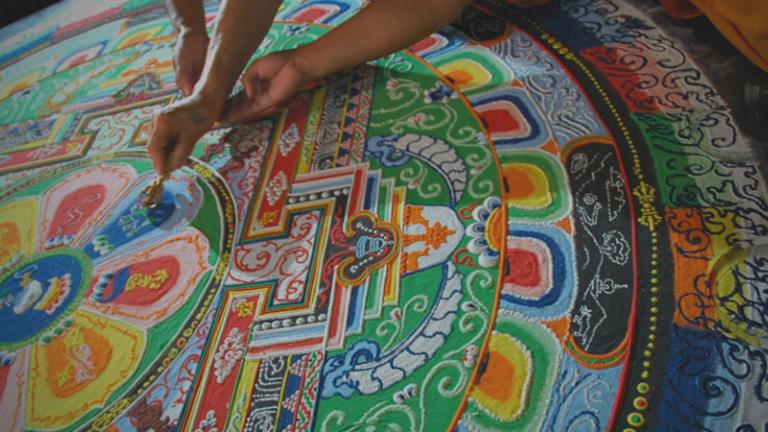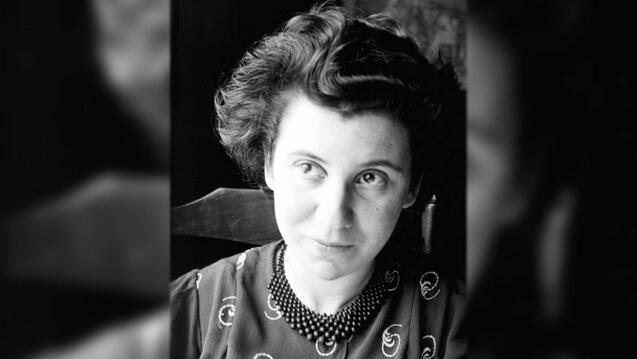
Faculty Profile: Dr. Debashish Banerji
Haridas Chaudhuri Endowed Chair for Indian Philosophies and Culture and Doshi Professor of Asian Art at CIIS
In fall 2016, Dr. Debashish Banerji was appointed the Haridas Chaudhuri Endowed Chair for Indian Philosophies and Culture and Doshi Professor of Asian Art at CIIS.
The Chaudhuri Chair was first established in 1987 in honor of CIIS’s founder. This prestigious position was initially held by Dr. Rina Sircar, CIIS professor emerita of Asian Philosophies and Culture, and by distinguished visiting professor Dr. Ramchandra Gandhi in the mid-1990s.
Professors who have served in this role are charged with maintaining and enhancing the founding vision of CIIS – an evolutionary view of humanity inspired by Indian sage Sri Aurobindo and dedicated to a synthesis of Asian and Western philosophies, psychologies, and cultural traditions.
Banerji had no intention of pursuing an academic career in Asian and Western philosophies; he originally intended to study engineering but, as he describes in a new video, he was overcome with depression, realizing this was not a career path he hoped to pursue. His depression stemmed from the fact that Banerji said he could not accept the kind of future that he was being told was the norm – being part of the corporate culture. It was this depression that pushed him into a long phase, which, at the end, led Banerji to the writings of Sri Aurobindo, a well-known Eastern philosopher who helped to inspire the formation of CIIS. It was this lineage of ancient teachings that quickly resonated with the deepest part of his being. It was at this point in his life that he decided to dedicate his passion to the study of these teachings.
Banerji has a varied and versatile academic background, with a bachelor’s degree in English literature from the University of Bombay, a master’s degree in Computer Science from the University of Louisville, Kentucky, and a doctorate in Indian Art History from the University of California, Los Angeles.
His dissertation focused on art and nationalism in India, as manifested in the life and work of the artist Abanindranath Tagore, one of the founders of modern Indian art. Banerji has worked as a cultural correspondent with some of the leading English language newspapers of India, as a software engineer in image processing projects, and as a leader of initiatives in instructional media and online pedagogy.
I am honored to occupy a chair named after CIIS’ founder, whose life and work I respect greatly.
- Debashish Banerji, Chair, East-West Psychology
From 1991 to 2005, Banerji served as the president of the East-West Cultural Center in Los Angeles, one of the earliest institutions in the U.S. to introduce a scholarly and cultural perspective on Indian spirituality and the teachings of Sri Aurobindo and his collaborator Mirra Alfassa.
Judith Tyberg, founder of the East-West Cultural Center, was one of the founding faculty members of the American Academy of Asian Studies, where she taught alongside Dr. Haridas Chaudhuri, Alan Watts, and Professor Frederic Spiegelberg, all of whom went on to found CIIS, in its original incarnation as the California Institute of Asian Studies.
Later, Banerji served as Professor of Indian Studies and Dean of Academics at the University of Philosophical Research in Los Angeles. He has also taught as adjunct faculty in Art History at Pasadena City College and the Irvine and Los Angeles campuses of the University of California. From 2005 to 2009, Banerji was the Director of the International Center for Integral Studies in New Delhi, India, an online graduate academic institution.
He is currently the Executive Director of Nalanda International, a nonprofit organization based in Los Angeles and dedicated to the promotion of interdisciplinary higher educational projects promoting a holistic world culture.
Banerji’s interest in the relationship between art and culture spans studies in pre-modern, modern, and contemporary Asian and transnational art histories. He has curated a number of exhibitions of Indian and Japanese art, including several at CIIS. His philosophical, psychological, and spiritual interests include the traditions and philosophies of India, integral yoga, and postmodern theory.
Banerji believes in the urgency of engaging dualisms, such as those of East-West or North-South cultures, and of science and the humanities. Before his appointment to the Chaudhuri Chair, he had a long relationship with CIIS as an adjunct faculty member and frequent guest lecturer at the university’s conferences.
Banerji is on the editorial board of Sutra Journal and the International Journal of Dharma Studies. He has published numerous articles and essays and edited a book on the Indian poet Rabindranath Tagore (Springer, 2013). He is the author of two books: The Alternate Nation of Abanindranath Tagore (Sage, 2010) and Seven Quartets of Becoming: A Transformational Yoga Psychology Based on the Diaries of Sri Aurobindo (DK Printworld and Nalanda International, 2012), the second of which received the Danam Book Award for Constructive Philosophy in 2014. An edited volume, Critical Posthumanism: Planetary Futures, is presently in press (Springer, 2016), as is a special issue of the International Journal of Transpersonal Studies on Integral Yoga Psychology.
On his new role, Dr. Banerji reflects: “CIIS is a unique school which takes a post-secular approach to higher education, yet engages cutting-edge theoretical tools to address contemporary problems and opportunities. It combines the inner warmth of a close-knit community with freedom from dogma and ideological assumptions. I am honored to occupy a chair named after CIIS’s founder, whose life and work I respect greatly. The reinterpretation and translation of ideas developed in the profoundly spiritual societies of Asia, so as to be of contemporary relevance in our troubled times, is an aim Dr. Chaudhuri represented in his teachings and his hopes for CIIS. I hope to contribute towards the furtherance of these goals.”
Bahman Shirazi is CIIS' Archivist and Historian, and an adjunct faculty member in the Integral Counseling Psychology program.
Related Academic Programs
Related News
Barbara Morrill, CIIS Professor Emerita, explores the life of Jewish writer Etty Hillesum, who decried the brutality of the Nazi occupation of Amsterdam during World War II.
A free online workshop series on intergenerational trauma with Kini Chang, LMFT, Chair of the M.A. in Counseling Psychology concentration in Community Mental Health.
Groundbreaking collection of essays reveals how Critical Sexuality Studies and Lavender Languages and Linguistics combine to analyze language use, sexuality and gender, and discourse on authority and power.



